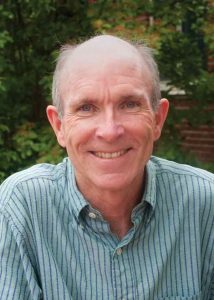Letter from the Director
Dear Readers,
 SSI is making real progress in helping Maine communities tackle pressing challenges at the intersection of economic, social and environmental issues. This became especially clear to me at a National Academy of Sciences symposium in Washington, D.C., this spring, where I was invited to speak in a session showcasing four exemplary programs advancing sustainability science in the U.S. and abroad.
SSI is making real progress in helping Maine communities tackle pressing challenges at the intersection of economic, social and environmental issues. This became especially clear to me at a National Academy of Sciences symposium in Washington, D.C., this spring, where I was invited to speak in a session showcasing four exemplary programs advancing sustainability science in the U.S. and abroad.
The meeting’s central theme was the need to move from abstract talk about sustainability to a concrete focus on ways that science can help solve pressing societal problems. In other words, how do we link knowledge with action in ways that will make a real difference in the world?
That’s exactly where SSI’s efforts are focused, and as I shared stories about the innovative work our research teams are doing, I realized just how far we’ve come. The pages that follow highlight a few milestones on the road to solutions. You’ll see how one SSI research team is working with two Maine towns on innovative new ways to balance economic development and conservation on private land. Another team is helping Maine’s coastal communities be better prepared for severe storms. A third team featured in this issue has forged the first partnership in the nation to proactively work with tribal communities to fight an invasive insect that threatens the trees at the center of their culture, art, and livelihoods.
These are just three of the dozen-plus SSI teams working with communities around the state on challenges ranging from developing alternative energy to creating improved planning tools for urban regions. As different as these projects are, they are all manifestations of what it means to roll up your sleeves and work with stakeholders every step of the way to help solve problems in the real world.
When I returned from Washington, my SSI colleagues asked me how people at the National Academy symposium responded to the work we’re doing. I came away with the strong sense that our work is viewed as a trail-blazing effort to show how universities can make a bigger difference in the world. A number of scientists at the symposium even told me that SSI’s work was “inspiring.”
These comments puzzled me at first, because “inspiring” isn’t a word scientists use very often. But I realized they meant that SSI is helping motivate them to make their science matter. So if we can use our science to help solve challenging problems in Maine while inspiring others to do the same, that’s a really good sign that we’re on the right track.
